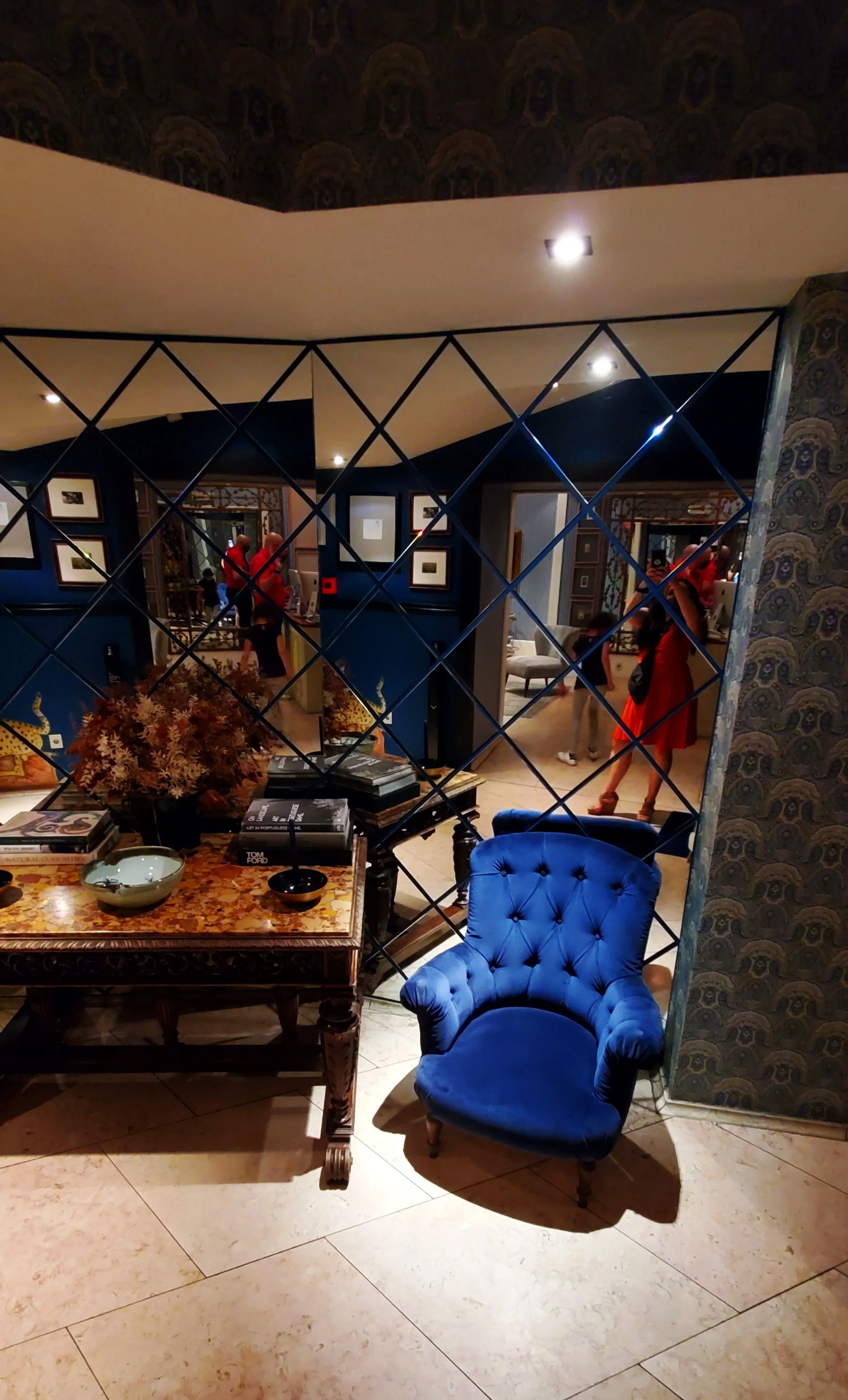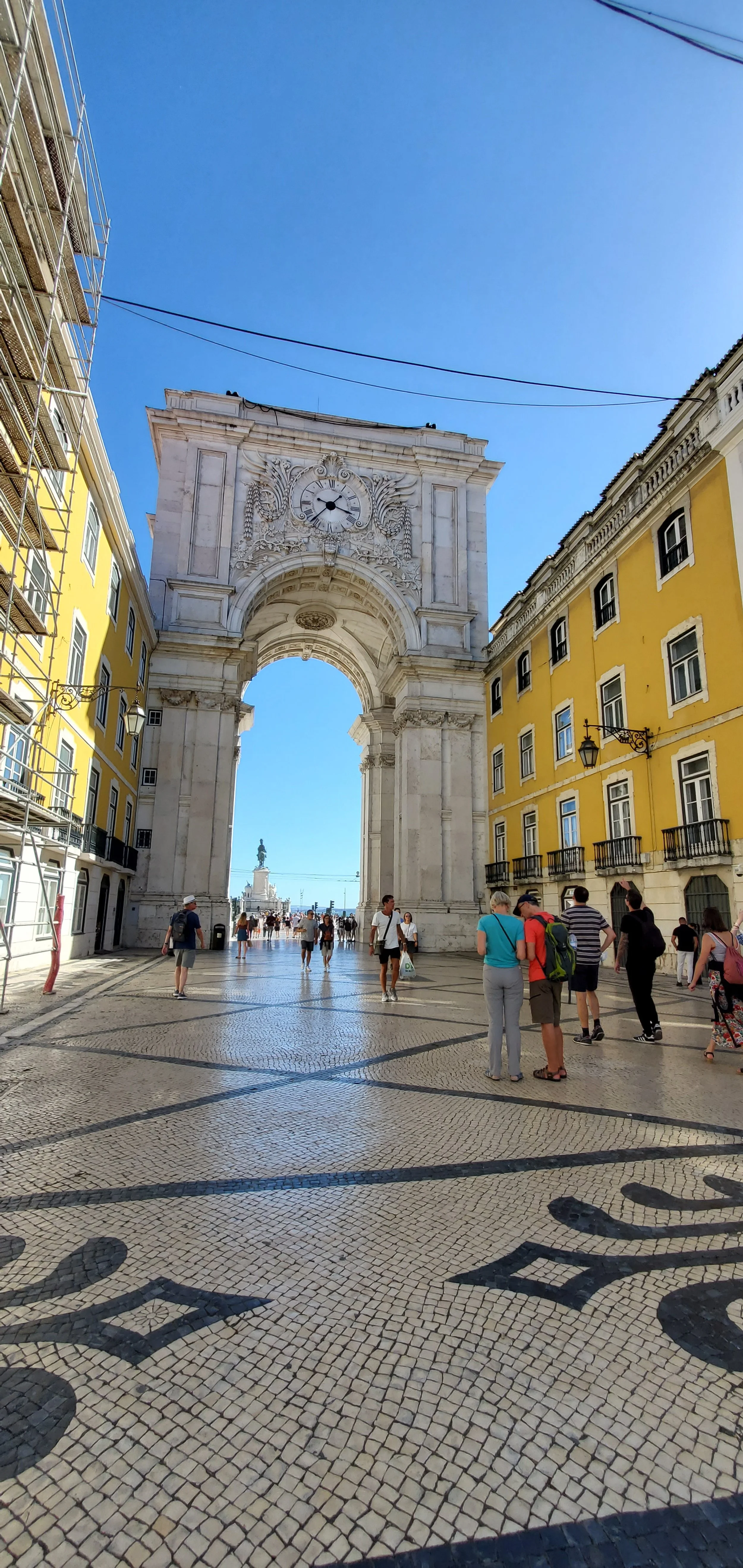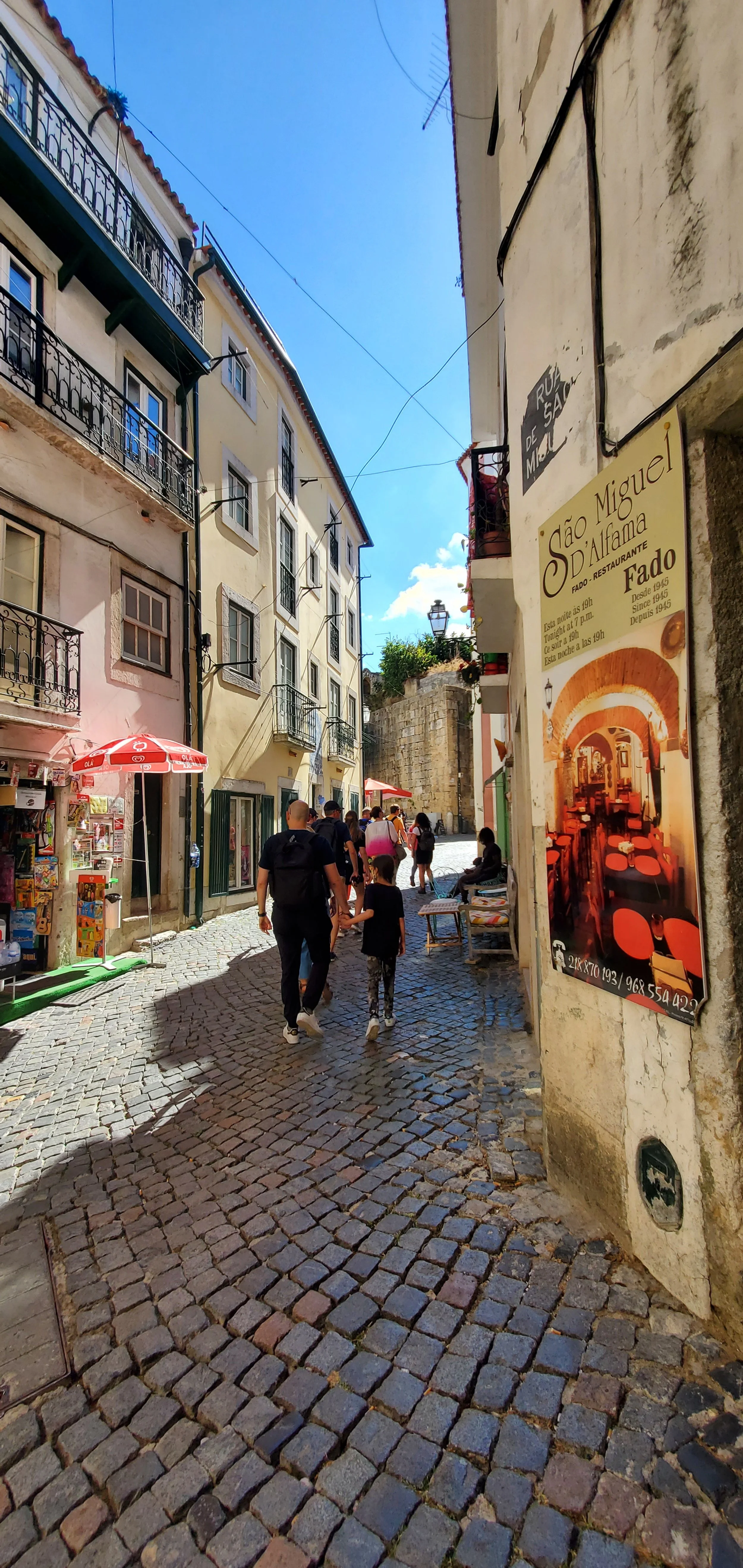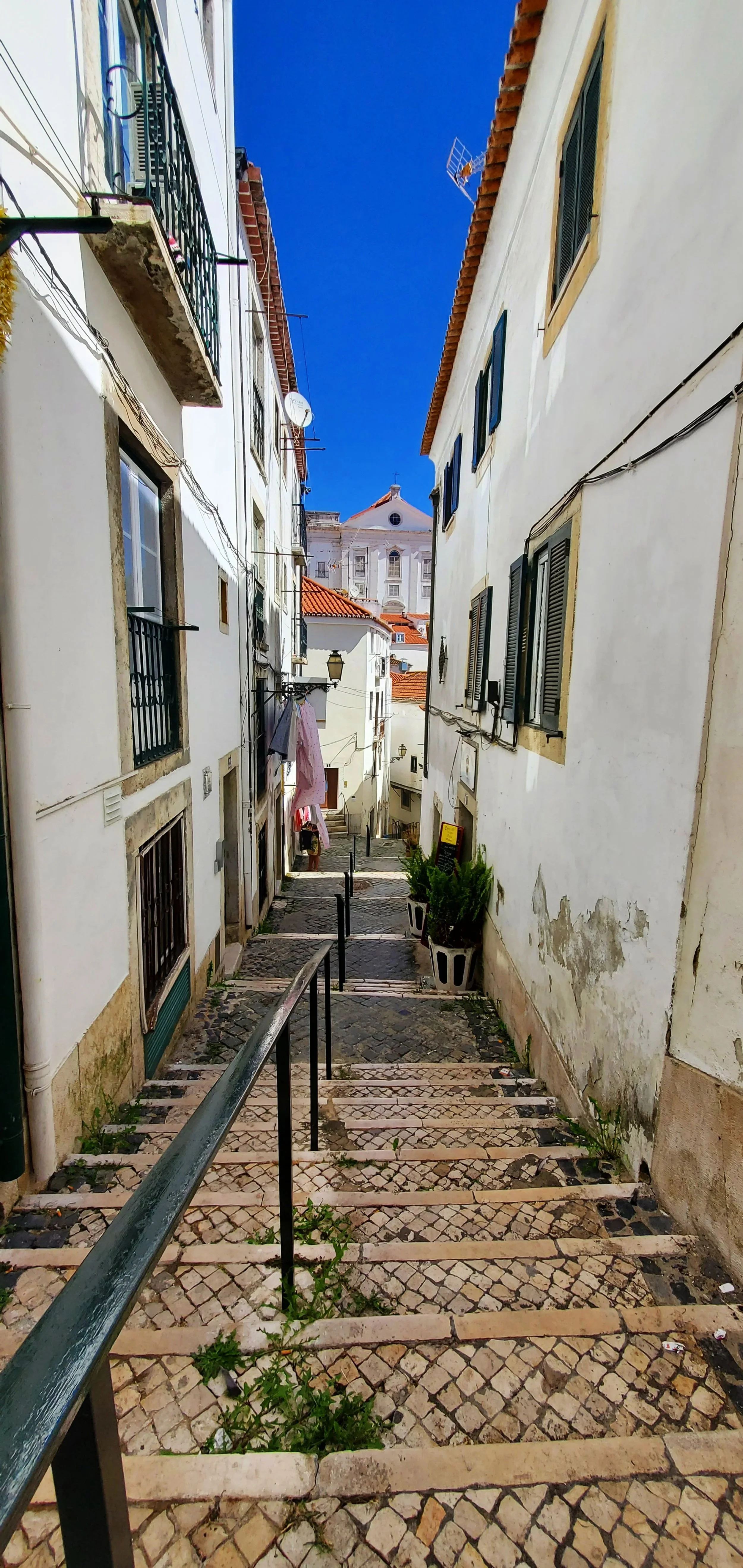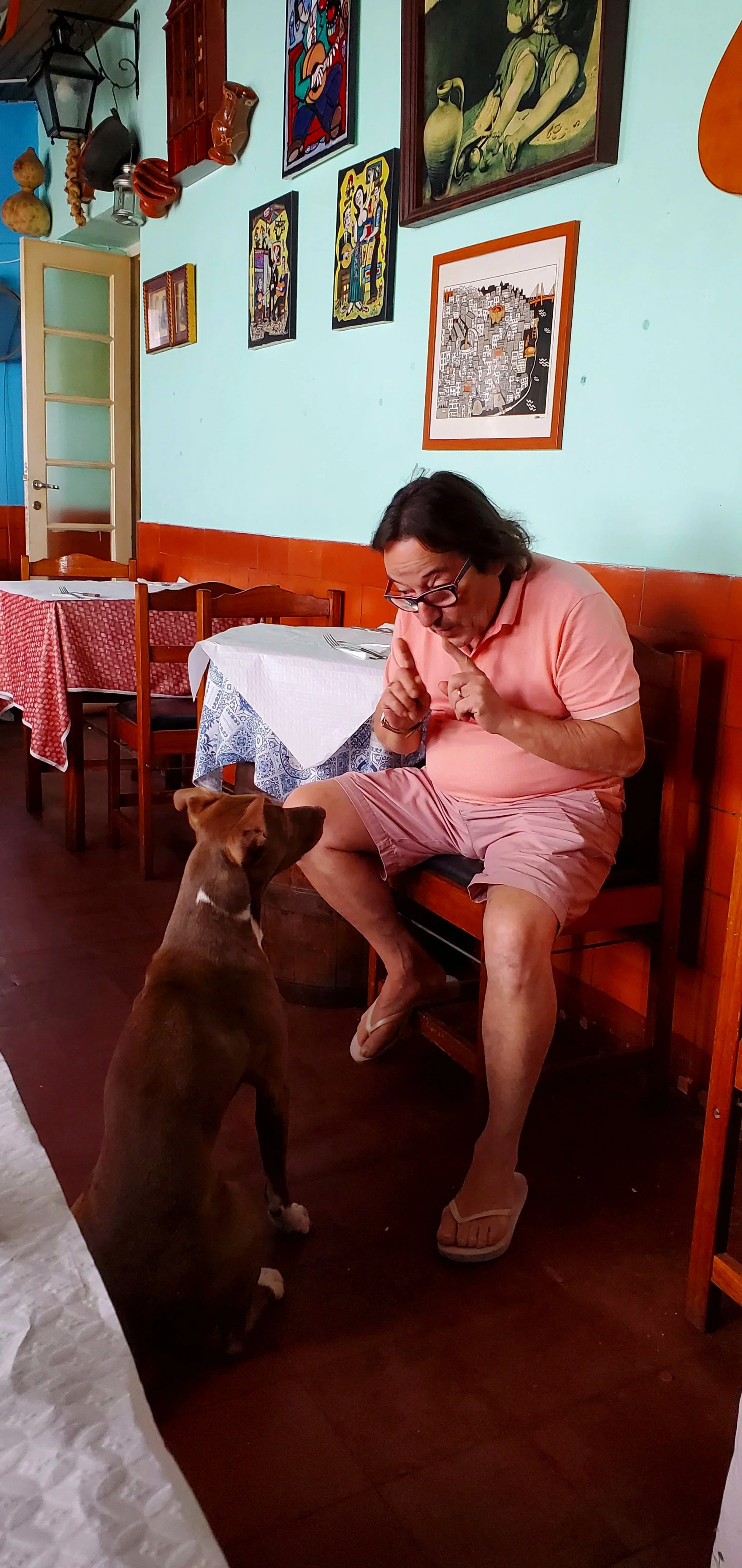Lost in Lisbon
Sleepy trams and saudade
There’s a certain weight to turning forty. It’s an age that arrives with its own baggage—part quiet reflection, part existential dread, and a healthy dose of wondering if you should finally start using eye cream. The answer to this milestone? Lisbon. A city of seven hills, endless tiles, and enough saudade to make even the most cynical traveler feel a pang of something profound. It seemed like the right place to get older, a city that wears its age with a kind of weary, romantic grace.
It was mid-September 2021 when this trip to Lisbon became more than just an idle daydream. Alex, with his knack for thoughtful gestures, decided it was the perfect 40th birthday gift. Somehow, he knew that this city—bursting with history, charm, and melancholic beauty—was exactly where I needed to mark the occasion. It wasn’t just a trip; it was an invitation to pause, to reflect, and to celebrate the turn of another decade in the golden glow of Lisbon's timeless streets.
LX Boutique Hotel
We checked into the LX Boutique Hotel, a charming spot where the walls are the color of a moody sky and the windows look out over the city’s restless energy. It was the perfect command center for a multi-day assault on a city that demands you walk, eat, and get wonderfully lost in its labyrinthine streets.
A Birthday Feast for the Ages
For the big night, the fortieth birthday dinner, we went to Feitoria. Tucked inside the Altis Belem Hotel, this isn't just a restaurant; it's a culinary pilgrimage. Each course arrived like a chapter in a story I didn’t know I was reading—delicate, defiant, and impossibly beautiful. The chef seemed to be painting with flavors, turning humble ingredients into something transcendent. It was the kind of meal that silences you, that makes you put down your fork just to savor the moment, the taste, the quiet hum of a room full of people experiencing something truly special.
It’s rare, in an age of overhyped everything, to find a place that renders you breathless, that shifts something in your core. But Feitoria, tucked inside the understated luxury of the Altis Belem Hotel, is exactly that kind of place—a restaurant that feels like a secret you almost don’t want to share. Feitoria exists not to impress with pretension, but to tell a story. Each plate seems to echo Portugal itself—its landscapes, its coastline, its soul. This is cuisine stripped down to its essence, yet layered with complexity, and it makes you feel as though you’re tasting the country in its purest form.
The evening begins calmly, unassumingly. The room is warm, modern yet timeless with its textured walls and soft lighting, as if the space itself anticipates what’s to come. And then it starts—a small amuse-bouche, almost too beautiful to eat. A wisp of cod or a single crisped vegetable, plated like a miniature canvas. It’s not about the quantity here; it’s about intention. Each bite seems to carry within it the salt of the Atlantic, the earthiness of freshly tilled soil, the vibrancy of Lisbon’s markets.
But then, the dishes escalate. There’s precision, yes—razor-sharp techniques as only the best chefs in the world know how to execute. Yet there’s heart too, and it pours forth in offerings like Carabineiro prawns with nuanced, smoky notes or the tender quail in consommé, subtly laced with aromatics you can’t quite place. And the wine pairings? They are perfect—not merely selections from a list but acts of curation, chosen as if the sommelier knew the inner workings of your palate. Maybe it’s a lush Alvarinho cutting through the brininess of a seafood dish, or a bold Douro red that’s both a revelation and an invitation to linger.
Rua Nova do Carvalho
Every course arrives like an invitation into something sacred. There’s an unmistakable rhythm to the meal, a rise and fall that is almost musical—alternating between moments that dazzle and those that soothe. Midway through, you realize this isn’t just about food anymore. It’s about memory. It’s about connection. You find yourself wondering how someone could spend years of their life learning to perfect a sauce, how painstakingly they must have tested and re-tested these symphonies of flavor to extract such levels of purity. You understand, in a profoundly humbling way, that you’re tasting not simply food but the entirety of someone’s devotion.
And then, dessert. How do you prepare for such artful endings? An unpretentious presentation of a pastel de nata that feels both nostalgic and futuristic, or a sorbet that dances on your tongue with acid and sweet in a perfect dichotomy. You’re left stunned, not just by the flavors, but by the care—the meticulous attention to detail that threads through the entire evening like an unspoken promise.
Arco da Rua Augusta
By the end, you sit back in your chair, dazed in the best possible way. Outside, the Tagus River glimmers softly under Lisbon’s night sky, a subtle reminder of where you are but also where this meal has taken you. And it strikes you that Feitoria isn’t just special because of its accolades or its Michelin star. It’s special because it’s honest. It’s a testament to creativity married to discipline, to tradition spliced with daring innovation. Feitoria doesn’t shout its brilliance; it whispers it. And if you’re fortunate enough to sit at its tables, you’ll carry its memory with you long after you’ve left—like the echo of a song you can’t stop replaying in your mind. It was one of the best meals of my life, a perfect punctuation mark on four decades of living.
The Three F's of Alfama
Alfama
You can’t say you’ve been to Lisbon without getting tangled in the romantic, crumbling beauty of Alfama. We started with a food tour, which is just a civilized way of saying we let a local guide us from one glorious calorie bomb to the next. We ate fried cod in more ways than I thought possible, each one a crispy, salty revelation. We drank bright, crisp wine that tasted like sunshine and sea spray. The streets of Alfama are a beautiful mess—narrow, winding, and lined with buildings adorned in faded but defiant tiles. Laundry hangs from balconies like prayer flags, and the mournful notes of Fado music drift from shadowy doorways.
Our guide mentioned the "three F's of Alfama": Fado, Fatima, and Fascism, with a mischievous grin that made us laugh at the unexpected—and oddly poetic—juxtaposition. The phrase stuck with me, not only because it was funny but also because it sparked a memory of Antonio Tabucchi's novel Pereira Declares, a haunting tale set against the backdrop of Portugal's Fascist era. Standing in such an atmospheric neighborhood, with music in the air and history embedded in every stone, I couldn’t help but reflect on how stories, whether sung in Fado or written in prose, preserve the soul of a place.
Alfama
There’s a palpable melancholy in this historic neighborhood, as if the streets themselves carry the weight of countless untold stories. The fading facades of the old buildings and the wistful strains of Fado music filtering out of dimly lit taverns seem to echo the longing and heartbreak of generations past. It’s an ache that lingers in the air, weaving its way into your thoughts, making you acutely aware of time’s passage and the fragility of human existence. This melancholy doesn’t overwhelm; rather, it settles quietly, leaving a bittersweet impression that is as beautiful as it is haunting.
We loved it so much we came back another day, just to wander aimlessly. We let the cobblestones lead us, discovering hidden courtyards, tiny bars serving shots of ginjinha, and views that opened up over the city’s red-tiled rooftops, all the way to the Tagus River. Alfama doesn’t just charm you; it absorbs you.
Books, Baked Goods, and a Bit of Rebellion
Flipping off Magellan
Lisbon is a city for walkers, and we took that mission seriously. We covered miles, our feet aching in the best possible way. One of our pilgrimages was to Livraria Bertrand, the oldest operating bookstore in the world. Stepping inside felt like entering a sanctuary. The air smelled of old paper and new ideas, and the shelves were heavy with stories waiting to be discovered. It’s a place that reminds you of the enduring power of the written word, a quiet rebellion against a world that’s constantly shouting.
Another day, we made our way to Belém. First stop: the Monument to the Discoveries. This massive stone ship, crowded with historical figures, juts out into the river, a proud tribute to Portugal’s age of exploration. As a Chamorro woman, whose ancestors saw these "discoveries" from a very different perspective, I stood before the statue of Magellan and gave him a silent, but deeply satisfying, middle finger. It was a small, personal act of defiance, a nod to the ghosts of history that travel with us.
Pastéis
After my moment of historical reckoning, we sought solace in sugar. We joined the line at the legendary Pastéis de Belém, standing among locals and a couple of cops on their break. We emerged victorious with a box of the iconic custard tarts, still warm from the oven. We ate them right there in the cafe, the flaky crust shattering, the creamy custard rich and sweet, the cinnamon dusting our fingers. It was a moment of pure, unadulterated joy.
A Food Affair and Embracing My 40s
Happy birthday to me…
Our culinary explorations didn’t end with pastéis. Another night, we found ourselves at Sála de João Sá, an intimate spot where the chef’s creativity was on full display. The meal was inventive and surprising, a modern love letter to Portuguese ingredients. It was another reminder that Lisbon’s food scene is as dynamic and soulful as the city itself.
Each dish at Sála de João Sá felt like a carefully crafted story, combining tradition with bold experimentation. From the perfectly savory octopus risotto paired with a delicate multilayered confit to the unexpected harmony of a citrus-infused dessert, every bite was a revelation. The chef’s passion for showcasing seasonal, locally-sourced ingredients shone through, creating a meal that was deeply connected to the land and culture. The atmosphere, warm and understated, perfectly complemented the artistry on the plates, making it an unforgettable dining experience.
Reflecting on Lisbon’s Charm and Complexity
Warm moments in a neighborhood tavern in Alfama
Lisbon’s hospitality is undeniably beguiling, with its warm people, vibrant neighborhoods, and an extraordinary culinary scene that feels like a heartfelt invitation to immerse oneself in its culture. Yet, as one strolls through the cobblestone streets and encounters commemorations of the Age of Exploration, there’s a noticeable sense of pride in its historic ‘discoveries.’ While these accomplishments are part of Lisbon’s story, they are also a reminder of the complex and often painful legacy of colonialism that reshaped much of the world.
This duality defines Lisbon—a city that embraces its traditions but could benefit from deeper reflection on the narratives it chooses to celebrate. Turning 40 in Lisbon was not only a feast of unforgettable flavors but also a moment to gain perspective—a reminder that travel is as much about savoring joys as it is about understanding histories and one’s own past.
Looking out over the Tagus with my travel buddies in Almada
Lisbon gets under your skin. It’s in the melancholy beauty of a Fado song, the taste of a freshly baked pastel de nata, the feeling of sun on your face as you look out over the Tagus. It’s a city that doesn’t hide its scars; it wears them like a badge of honor. Turning forty here felt right. It wasn’t about closing a chapter, but about stepping into a new one with a full heart, a satisfied appetite, and the quiet understanding that the best discoveries are the ones you make when you’re not looking for them at all.

